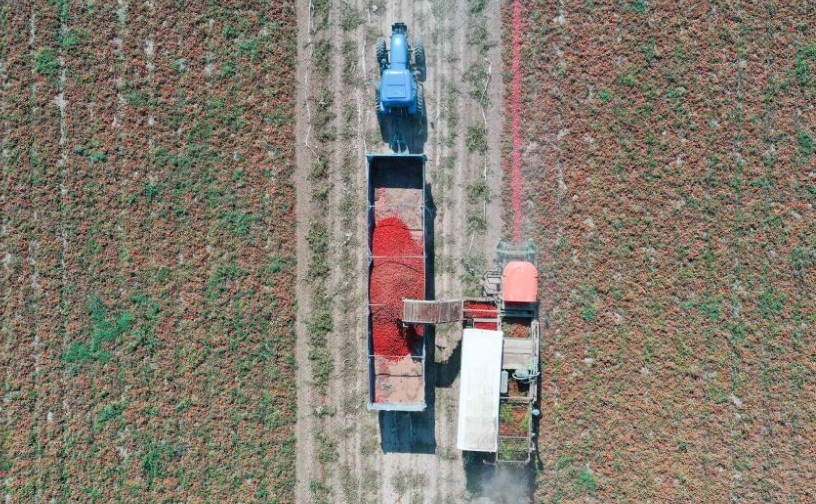URUMQI, Sept. 23 (Xinhua) -- For Ran Rong, a veteran rice farmer in Qapqal Xibe Autonomous County of northwest China's Xinjiang Uygur Autonomous Region, September is the happiest season as it's the harvesting time for his paddy field.
Yet, it is no longer the busiest season for Ran, who had to toil in the field in the past, as the wide use of machinery has reduced manual labor to a minimal level.
"The village has arranged three harvesters for my family's 16 hectares of paddy field, and the harvesting might just take about eight days," said Ran, whose hometown county is one of Xinjiang's three major rice-growing regions.
Machinery is making harvesting easier for farmers in Chinese agriculture powerhouse Xinjiang and across the country.
Some 30 million units of agricultural machinery equipment would be put into use nationwide during autumn, according to the Ministry of Agriculture and Rural Affairs.
The country's machinery harvesting rate of rice is expected to top 94 percent this season, and that for corn and soybean might surpass 80 percent and 82 percent, respectively, according to the ministry.
In the past decade, the comprehensive mechanization rate of agricultural production had increased by 15 percentage points to exceed 72 percent.
"China's agricultural production has shifted from relying mainly on manual and livestock labor to mechanical tools, entering a new stage dominated by mechanization," said Wang Jiayun, deputy director of the agriculture ministry's mechanization management department.
As a manufacturing giant, China's agricultural machinery equipment industry has basically covered all categories and can produce more than 4,000 kinds of agricultural machinery products, meeting 90 percent of the domestic market demand.
The rural fields have become a pilot ground for agricultural machinery innovations, with growing applications of artificial intelligence, Beidou satellite navigation, and other technologies.
In another paddy field in east China's Yancheng City, Jiangsu Province, Zhou Qi and two other young men are proceeding with a bold project of managing 333.33 hectares of rice by just themselves and a set of smart agriculture systems and equipment provided by domestic agri-tech start-up XAG.
Through remote-sensing drones and Internet of Things devices, the data of the whole process of farming, planting, management, and harvesting of agricultural production is obtained, and then processed by an AI system to finetune field management. The agricultural production process is mainly done by unmanned agricultural machinery.
Official data showed that by the end of 2020, China had more than 600,000 tractors and harvesters equipped with operation monitoring and intelligent control terminals based on Beidou satellite navigation. The number of agricultural drones exceeded 70,000 units.
"We estimate that the yield will be 9,000 kg per hectare this year. The net profit will also be good because of the marked reduction in labor costs," Zhou said.




 A single purchase
A single purchase









